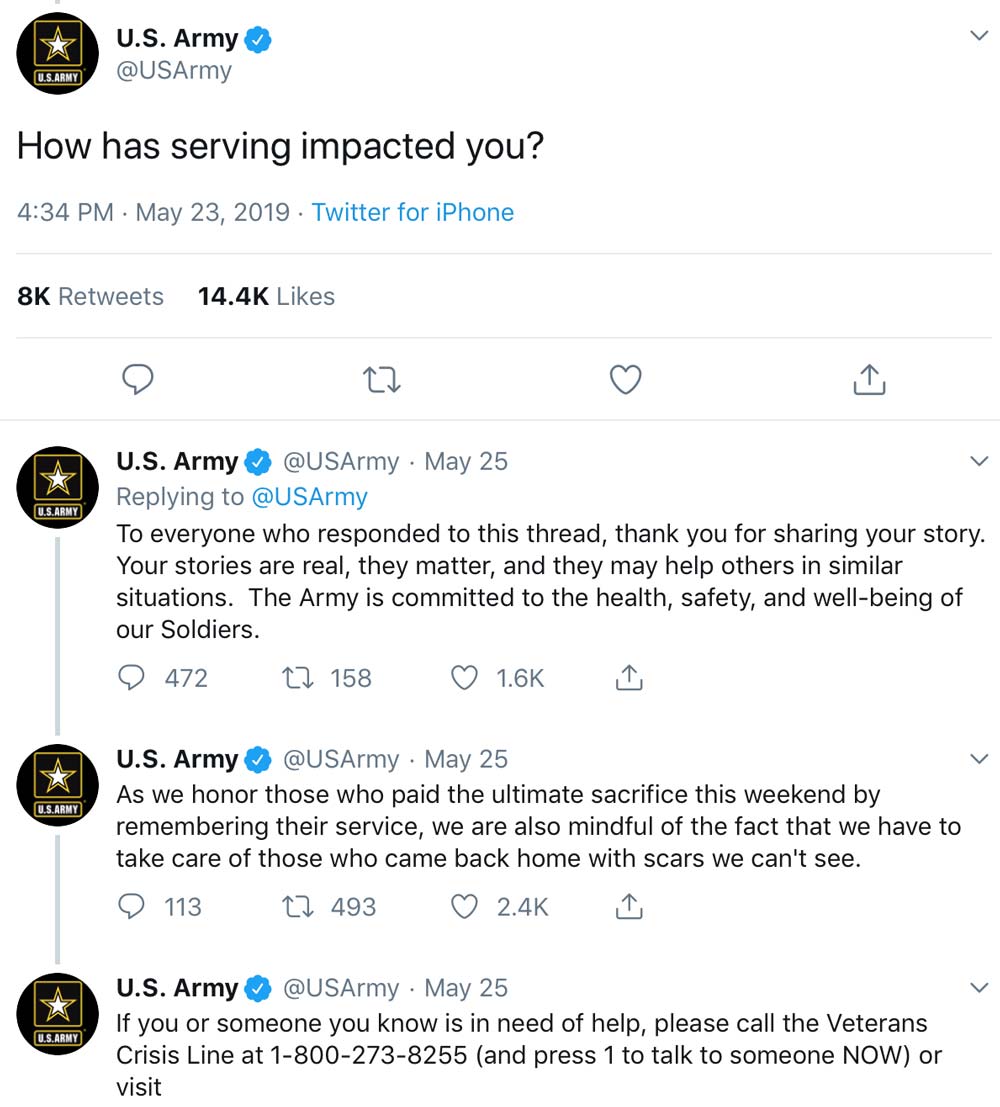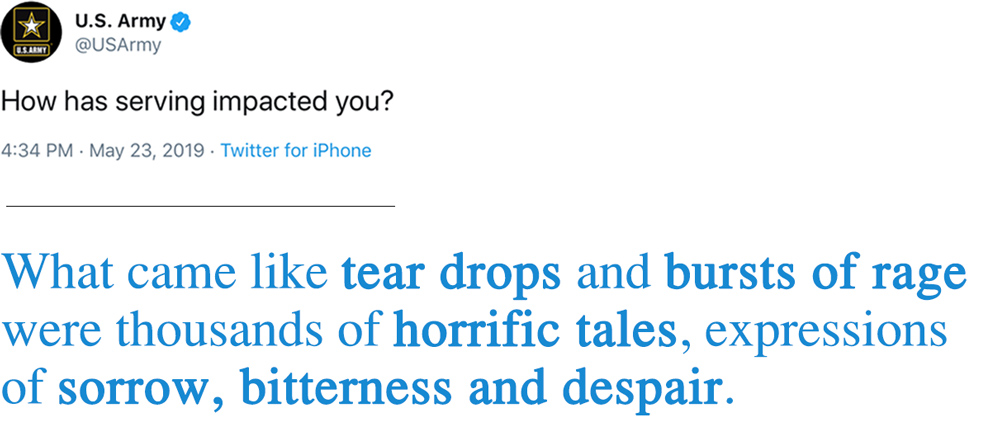Last week, when the public relations wing of the U.S. Army asked, on Twitter, “how has serving impacted you?” the bulk of the responses were not what was hoped for. What came like tear drops and bursts of rage were thousands of horrific tales, expressions of sorrow, bitterness and despair.
No doubt the intention was to elicit, if not patriotic uplift, at least stories of learning, moral growth, centeredness, and personal victory out of sacrifice and suffering. Almost certainly the Army wanted what the promoters of “national service” now want.
The outcome was far messier.
Now, the Army handled the Twitterflak very well, with a tweet thanking people for their expressions. But a response by Mike Schmidt (@MikeSchmidt69) was probably as upbeat as could be expected, given the ‘writing on the wall’— er, Twitterfeed: “Some say this thread back-fired but this is just the thread that is needed each [M]emorial [D]ay so we remember the sacrifices military members and their families make and how we as a country need to understand the true cost of service and improve our support.”
Most of the tweets I read were decidedly not upbeat. The anger and pain over battle deaths, wounds, PTSD, mental illness, suicides, and so much indifference to it — it was deep and wide … and heartbreaking.
‘War is hell.’ In self-defense — defense of These United States — the brave soldier and general is honorable. But that honor is informed by the reticence that comes from actual knowledge of its true costs.
Maybe this Memorial Day President Trump and all policy makers will finally get what service truly is … and stop pitching more of the same unjustifiable-because-unwinnable or ‑unendable interventions around the world.
Of course, demanding peace and sanity and accountability is up to all of us holding the hot dogs.
This is Common Sense. I’m Paul Jacob.

See all recent commentary
(simplified and organized)
See recent popular posts
